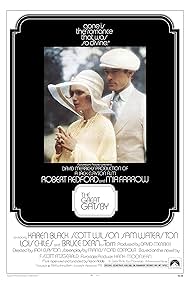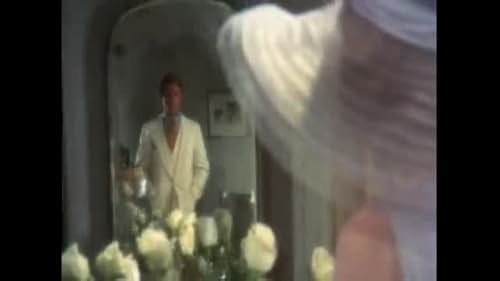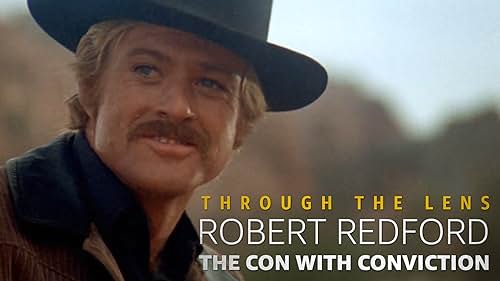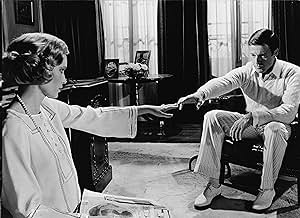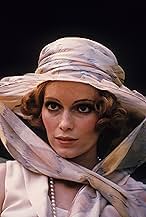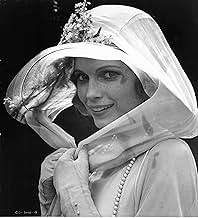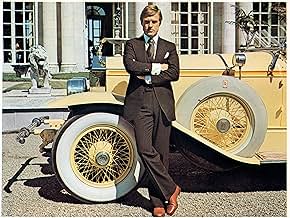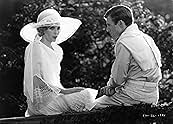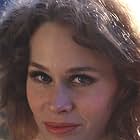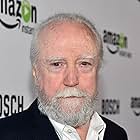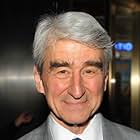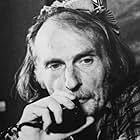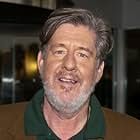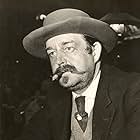A Midwesterner becomes fascinated with his nouveau riche neighbor, who obsesses over his lost love.A Midwesterner becomes fascinated with his nouveau riche neighbor, who obsesses over his lost love.A Midwesterner becomes fascinated with his nouveau riche neighbor, who obsesses over his lost love.
- Won 2 Oscars
- 7 wins & 4 nominations total
- Director
- Writers
- All cast & crew
- Production, box office & more at IMDbPro
Storyline
Did you know
- TriviaMia Farrow was pregnant during filming. Director Jack Clayton did a lot of close-up shots and put her in a lot of flowing costumes.
- GoofsThe puppy that Tom buys Myrtle ages at least 6 months by the time it gets to the apartment.
- Quotes
Daisy Buchanan: And when I was in the delivery room, waking up from the ether, I asked the nurse whether it was a boy or a girl. She said it was a girl - and I turned my head to the side and cried. And then I said, I hope she grows up to be a pretty little fool. That's about the best a girl can hope for these days, to be a pretty little fool.
- Alternate versionsIn the movie's original theatrical release, Tom Ewell played a small part at the cemetery near the end. Several weeks into the run, theaters were sent a new last reel from which Tom Ewell's part had been removed.
- ConnectionsEdited into The Kid Stays in the Picture (2002)
Featured review
This version tries to stay very true to the roots of the story. It's greatest detriment is its lavish budget, made evident from scenery and costuming. Coppola does an admirable job with his script, but it is impossible to fail to realize that he borrowed heavily from the source material, often citing it verbatim. In this sense, the plot is very faithful to the novel. The film fails to recapture the feel, mood, and spirit of the novel and of the twenties. Fitzgerald made Gatsby a very personal character. For him, there was always something unattainable; and for Gatsby, it was Daisy, the lost love of his life, forever symbolized by a flashing green light at her dock.
When it doesn't try, the film captures the mood of the twenties. This is especially true during Gatsby's first party, showing people being themselves. The majority the cast, particularly Mia Farrow, and with the exception of Bruce Dern (Tom Buchanan) play their parts as if they were silent actors. Even the flickering quality of silent film seems to haunt this film stock. It goes without saying the acting was overdone for the most part. This is true of the essence of the characters and of the times, although in the film, it is overkill. The set decoration was visually pleasing and it effectively captured the mood of each scene and the twenties.
This film, more than anything else, is a scary attempt of a tribute. In the novel, the green light, and the T.J. Eckleburg sign had significant meanings. Stranded in the film, they remain merely stripped objects. The set seems to attempt to "fix" Fitzgerald's descriptions. Where in the book, Daisy and Tom Buchanan's home is very inviting, the film drowns in whites and yellows in the film.
Actors aren't exploited to its potential. Clayton fails to give us a relatable Gatsby, a crucial element to the novel. Redford could have played Gatsby very well. It's not his fault that he doesn't. When we are introduced to Gatsby, it's through a low-angle shot of a figure seen against the night sky, framed by marble. This isn't the quiet, unsure, romantic Gatsby on his doomed quest. This is the arrogant, loud and obnoxious Charles Kane, who knows he's rich and isn't shy about it. The scene where Gatsby symbolically reaches out to snatch the green light stays true to the book, but looks stupid on film.
Three essential scenes make the film seem even less credible. These are times where it is essential to portray Gatsby as the one we know and love from the novel. The first is the original meeting between Gatsby and Nick. Redford's inarticulate and formality with Nick is laughable. It's the first time we hear him talk, and he's so mannered that the acting upstages the content of the scene. Nick is supposed to be so relaxed he doesn't realize that he's talking to a millionaire. Changing the location of this scene from in the party to the office is the cause for this dramatic awkwardness. This has to have been Clayton's doing. This changes Gatsby's character, and he Gatsby isn't as sure of himself as the book had made us believe. Doesn't that have to be Clayton's fault? Using The Sting, Butch Cassidy and The Candidate as examples, we know Redford has enough versatility to play this scene several other, better ways. In the Gatsby and Daisy reunion (crucial moments to the picture) we see Gatsby's smiling and Daisy's stunned reaction held for so long, we wonder why Nick just doesn't go out and smoke one cigarette, come back, and go outside again to smoke another one. He'd go through a whole pack. Any tension we might have had has been fed to ridiculousness. The other plot cliché that further adds to this product of celluloid silliness is Gatsby's final scene. The way this is presented may work on stage and it certainly would work in a silent film, but here it is so hackneyed, so irreversibly awkward that any suspense is gone, and it looks silly.
The message of the novel, in my opinion, is that although Gatsby is a crook and has dealt with the likes of Meyer Wolfsheim, gamblers and bootleggers, he is still a romantic, naive, and heroic boy of the Midwest. His idealism is doomed in the confrontation with the Buchanan recklessness. This isn't clear in the movie.
We are told more than shown. The soundtrack contains Nick's narration, often verbatim from the novel. We don't feel much of what we're supposed to feel because of the overproduction and clichés. Even the actors seem somewhat shied away from their characters because of this. We can't figure out why Gatsby's so "Great", or why Gatsby thinks that Daisy is so special. Mia Farrow's portrayal of Daisy falls flat of the novel's description. The musical quality of her voice has been replaced with shrills, and her sophistication has been stripped of her complexity. This is extremely evident by her Clara Bow acting style in this picture, especially in the scene where Redford is throwing his shirts on the floor and she starts crying.
How could a screenplay that borrowed so much of Fitzgerald's novel be portrayed so inaccurately? When one reads a novel, it is up to the author to create his symbolisms from scratch. When a book is transformed into a film, the filmmakers must be sure to covey the symbols more than by merely showing them. They must still be carefully developed, whether by dialogue or more action. In the novel it works well. When translated to film symbolism is lost in translation.
As a film on its own, the technical qualities are excellent, and can be more than worth your while catching at least an hour's worth just for the scenery, costuming, and for the few great scenes that successfully convey the twenties.
When it doesn't try, the film captures the mood of the twenties. This is especially true during Gatsby's first party, showing people being themselves. The majority the cast, particularly Mia Farrow, and with the exception of Bruce Dern (Tom Buchanan) play their parts as if they were silent actors. Even the flickering quality of silent film seems to haunt this film stock. It goes without saying the acting was overdone for the most part. This is true of the essence of the characters and of the times, although in the film, it is overkill. The set decoration was visually pleasing and it effectively captured the mood of each scene and the twenties.
This film, more than anything else, is a scary attempt of a tribute. In the novel, the green light, and the T.J. Eckleburg sign had significant meanings. Stranded in the film, they remain merely stripped objects. The set seems to attempt to "fix" Fitzgerald's descriptions. Where in the book, Daisy and Tom Buchanan's home is very inviting, the film drowns in whites and yellows in the film.
Actors aren't exploited to its potential. Clayton fails to give us a relatable Gatsby, a crucial element to the novel. Redford could have played Gatsby very well. It's not his fault that he doesn't. When we are introduced to Gatsby, it's through a low-angle shot of a figure seen against the night sky, framed by marble. This isn't the quiet, unsure, romantic Gatsby on his doomed quest. This is the arrogant, loud and obnoxious Charles Kane, who knows he's rich and isn't shy about it. The scene where Gatsby symbolically reaches out to snatch the green light stays true to the book, but looks stupid on film.
Three essential scenes make the film seem even less credible. These are times where it is essential to portray Gatsby as the one we know and love from the novel. The first is the original meeting between Gatsby and Nick. Redford's inarticulate and formality with Nick is laughable. It's the first time we hear him talk, and he's so mannered that the acting upstages the content of the scene. Nick is supposed to be so relaxed he doesn't realize that he's talking to a millionaire. Changing the location of this scene from in the party to the office is the cause for this dramatic awkwardness. This has to have been Clayton's doing. This changes Gatsby's character, and he Gatsby isn't as sure of himself as the book had made us believe. Doesn't that have to be Clayton's fault? Using The Sting, Butch Cassidy and The Candidate as examples, we know Redford has enough versatility to play this scene several other, better ways. In the Gatsby and Daisy reunion (crucial moments to the picture) we see Gatsby's smiling and Daisy's stunned reaction held for so long, we wonder why Nick just doesn't go out and smoke one cigarette, come back, and go outside again to smoke another one. He'd go through a whole pack. Any tension we might have had has been fed to ridiculousness. The other plot cliché that further adds to this product of celluloid silliness is Gatsby's final scene. The way this is presented may work on stage and it certainly would work in a silent film, but here it is so hackneyed, so irreversibly awkward that any suspense is gone, and it looks silly.
The message of the novel, in my opinion, is that although Gatsby is a crook and has dealt with the likes of Meyer Wolfsheim, gamblers and bootleggers, he is still a romantic, naive, and heroic boy of the Midwest. His idealism is doomed in the confrontation with the Buchanan recklessness. This isn't clear in the movie.
We are told more than shown. The soundtrack contains Nick's narration, often verbatim from the novel. We don't feel much of what we're supposed to feel because of the overproduction and clichés. Even the actors seem somewhat shied away from their characters because of this. We can't figure out why Gatsby's so "Great", or why Gatsby thinks that Daisy is so special. Mia Farrow's portrayal of Daisy falls flat of the novel's description. The musical quality of her voice has been replaced with shrills, and her sophistication has been stripped of her complexity. This is extremely evident by her Clara Bow acting style in this picture, especially in the scene where Redford is throwing his shirts on the floor and she starts crying.
How could a screenplay that borrowed so much of Fitzgerald's novel be portrayed so inaccurately? When one reads a novel, it is up to the author to create his symbolisms from scratch. When a book is transformed into a film, the filmmakers must be sure to covey the symbols more than by merely showing them. They must still be carefully developed, whether by dialogue or more action. In the novel it works well. When translated to film symbolism is lost in translation.
As a film on its own, the technical qualities are excellent, and can be more than worth your while catching at least an hour's worth just for the scenery, costuming, and for the few great scenes that successfully convey the twenties.
- How long is The Great Gatsby?Powered by Alexa
Details
- Release date
- Country of origin
- Language
- Also known as
- Der große Gatsby
- Filming locations
- Marble House - 596 Bellevue Avenue, Newport, Rhode Island, USA(Gatsby Mansion: Some Interiors)
- Production companies
- See more company credits at IMDbPro
Box office
- Budget
- $6,500,000 (estimated)
- Gross US & Canada
- $20,563,273
- Gross worldwide
- $20,563,766
Contribute to this page
Suggest an edit or add missing content

